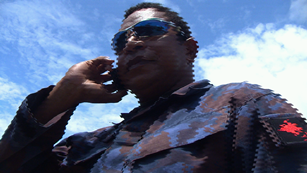By Scott Waide
A 3G mobile network, free text messaging and internet enabled phones have been cited as key elements that allowed Papua New Guinean security forces to maintain order during the country’s elections in June.
In ongoing post mortems of Election 2012, the Royal Papua New Guinea constabulary’s ICT unit has featured prominently as a vital part of the operations. Chief Superintendent, Win Jupris, Director of Communications, say mobile phones have proved to be a powerful tool.
“Because text messaging was free, we were able to get up to the minute, updates on the ground.
“We were also able to issue commands to multiple recipients via SMS.”
The PNG government’s decision to open up the communications market more than five years ago appears to be paying off.
The arrival of Digicel as a competitor to the state owned Telikom has drastically reduced communications costs. Rural Papua New Guineans now have access to relatively reliable mobile communications. Internet usage is slowly increasing in rural areas.
The use of social networks has seen a significant jump since the arrival of internet enabled handsets.
It is estimated there are between 60,000 and 100,000 Facebook users in Papua New Guinea with more signing everyday.
The flow of information in June elections has been unprecedented. Security forces were able to deploy faster because of the rapidity of information flow. Police officers on the field were able to keep in touch with family and interact with the public via Facebook.
Better communications have also allowed ordinary Papua New Guineans to get a glimpse of how police work happens during election time.


